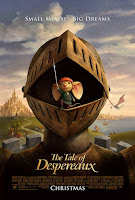Best book to movie adaptation:


Worst book to movie adaptation:






I love her Create a Cover activity, so I am re-posting her instructions, along with my contribution. I'd love to know if you try it!
Here are the directions for the Create a Cover activity.1 – Go to “Fake Name Generator” or click http://www.fakenamegenerator.com/
The name that appears is your author name.
2 – Go to “Random Word Generator” or click http://www.websitestyle.com/parser/randomword.shtml
The word listed under “Random Verb” is your title.
3 – Go to “FlickrCC” or click http://flickrcc.bluemountains.net/index.php
Type your title into the search box. The first photo that contains a person is your cover.
4 – Use Picnik, or something similar to put it all together. Be sure to crop and/or zoom in.
And here is my attempt:
What I especially love about this activity is how it can generate an actual writing idea. I still need to get back into my NaNoWriMo novel and do some revision. But maybe I'll start a new novel first!


